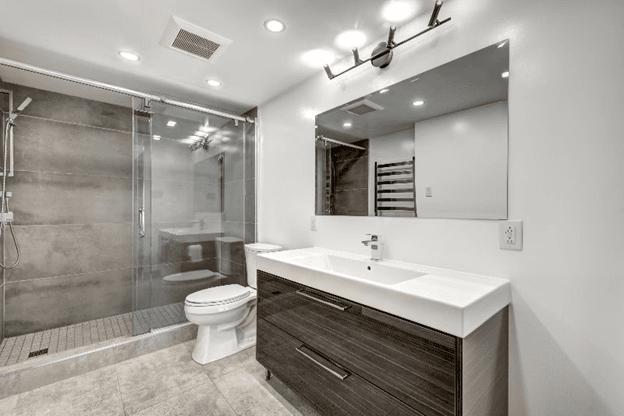Why a permit?
The U.S. housing market is picking up steam according to recent statistics.
The National Association of Home Builders confidence index increased by , as stated in the organization's press release. The association uses this index to monitor the pulse of the single-family housing market and how confident builders are.
The Wall Street Journal reported that ratings above 50 generally signal builders hold a favorable view of the housing market, and conditions are positive. The U.S. government reported construction spending rose to its highest levels since November 2008, and home sales were also up 6.8 percent in April, according to the U.S. Census Bureau. In all, the housing market looks to be recovering nicely following a few years of uncertainty.
As such, homeowners and construction firms are poised to use these summer months as the time to complete remodeling projects. Permits for new homes also saw an increase of 12 percent to an annual number of 1.3 million. The Wall Street Journal reported this is the highest number of permits since August 2007.
For homeowners looking to start remodeling projects, it's important to understand when they need a building permit.
Who gets a permit?
Building permits are essential for any project. In most instances, states and cities require them before any serious work can begin. According to home improvement website, Extreme How-To Blog, building permits are required for projects that go further than simple aesthetic upgrades. Homeowners will need to obtain a permit for the following projects:
- Changes to a building's plumbing or electrical system.
- Roof replacement.
- Constructing new or taking down load-bearing walls.
- Building a porch, deck or in-ground swimming pool.
- Construction of home additions
Permits are needed so inspectors can conduct building inspection during and after remodeling projects. Everything must abide by various standards, and those will vary depending on the state and city the home is located in. If homeowners don't obtain a building permit, they may face penalties such as fines. Although constant regulations may seem like a hassle, they will provide homeowners the reassurance that any construction will be safe and there will be no problems later on.
According to Michael Harris - president at BRY-JO Roofing & Remodeling - permits also provide additional benefits for homeowners.
"The second, and most significant reason, is it protects the homeowner's investment they are making to improve the property," Harris said in an interview with Extreme How-To Blog.
You are more than welcome to obtain the permit yourself, however, it may be best for the licensed professional contractor to get the permit. This is because the city inspection office will likely ask technical questions that the contractors can better answer.
Contractors can also spot existing issues and obtain the permits to fix anything not normal. Likewise, not obtaining a permit may harm the homeowners in the future.
"While it may be tempting to forego the permit, a remodel or addition done without one can be a problem if the homeowner decides to sell or refinance," Patrick Noaker, an attorney and member of the National Association of the Remodeling Industry, according to Extreme How-To Blog.
For instance, Extreme How-To Blog said illegal construction may lead to further investigation. Total square footage may differ from old records and as a result, banks may decline to issue a loan meant to buy the house. Even home insurance carriers may refuse to offer coverage for illegal constructed remodeling projects.
When in doubt, you should always ask the contractor if a permit is needed. If you are unsure about obtaining permits for smaller projects, you should call your local city, state and county office to check.
Get the Latest Insights!
Sign up to stay up to date with latest tips, trends and updates from WIN.










